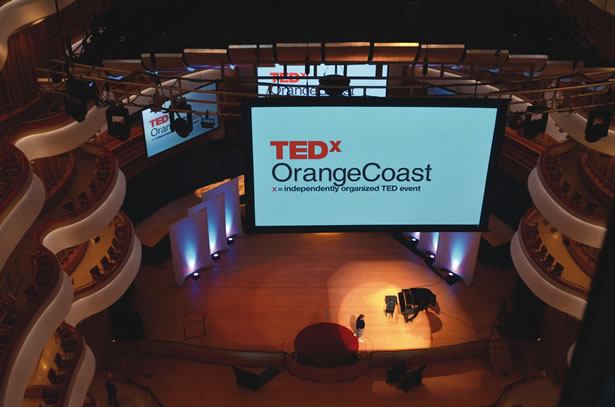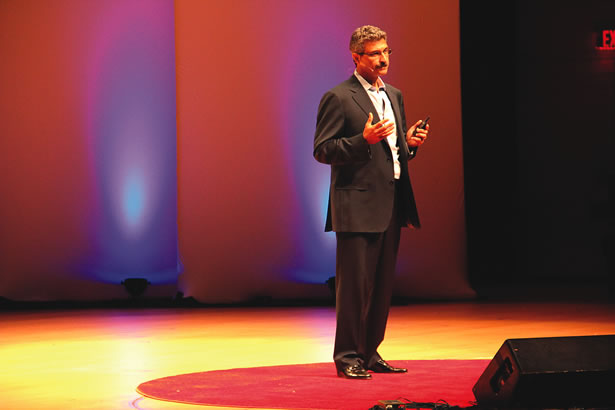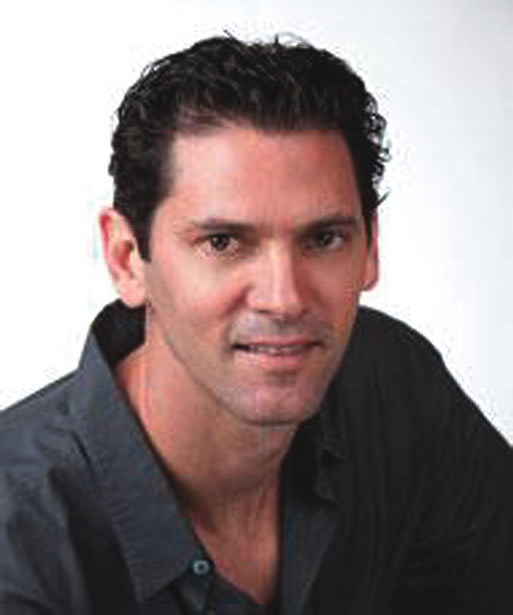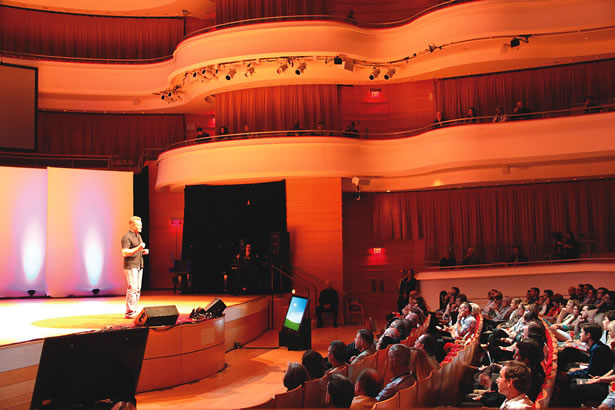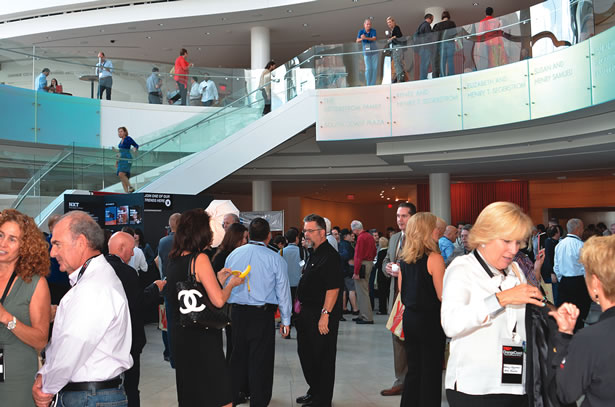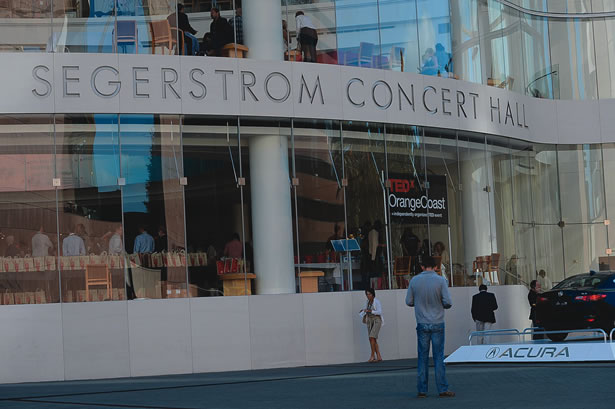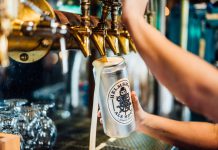Orange County finds a platform for sharing ideas at TEDxOrangeCoast.
By Linda Domingo
In a time when more than 300 million tweets are sent per day, virtually all major news publications are available online and the answer to almost any question can be found with a quick Google search, how do we identify what’s relevant? How do we remain relevant? On Oct. 20, 2012, more than 1,400 people from OC gathered at Segerstrom Center to ponder these questions, hear ideas, share enthusiasm and gain inspiration from TEDxOrangeCoast’s program, Redefining Relevance.
TED (technology, entertainment and design), the set of conferences held around the globe dedicated to the mission of “spreading ideas,” has become a worldwide phenomenon with more than 1,000 attendees at the annual Long Beach conference, events held in different countries, 1 billion online viewers and its talks now available on Netflix. But what is TEDx? The “x” indicates that the event was independently organized by community members who have secured a TEDx license, and these events range in size from 10 people into the thousands. To date, there have been nearly 6,000 TEDx events held around the world.
Organizing TED
Mojdeh Eskandari, the executive producer of TEDxOrangeCoast, has been involved with organizing the event since applying for a TEDx license in 2010. “It feels like although you have all the ingredients in OC—the business, the weather, everything—the conversations are not happening as naturally as in the Bay Area, or in Paris where I have lived before,” she says. Although almost anyone is eligible for a license, there are exceptions, like those associated with controversial or extremist organizations or those looking to promote religious beliefs. There are also strict rules in regards to the event’s purpose, format, branding, speakers and more. In addition, those organizing the event cannot profit from it. “Our motivation is [to create] a platform for conversation,” Mojdeh explains.
At the October TEDxOrangeCoast event, organizers had a wealth of speakers to choose from. Mojdeh explains that they crowd-sourced nominations as well as approached notable community figures for the 2012 lineup. Among the 30 speakers at the event, there were some locals, including Shawn Green and Stanton Rowe of Newport Beach, Emile Haddad of Laguna Niguel and Hans Keirstead of Laguna Beach. These local speakers brought the ideas even closer to home for coastal OC attendees.
Slowing Down
Retired Major League Baseball player Shawn Green, formerly of the Los Angeles Dodgers, took the stage during the first session of the day with his talk about how he found inner peace and success in a fast-paced industry through meditation. “Life comes at you fast,” Shawn opened his talk. “And baseballs in the major leagues, even faster.” After pressure to change his batting style, failure to perform and ultimately being benched, Shawn turned to meditation—qigong, specifically—to center himself. He soon found himself back in the starting lineup. “For me, redefining relevance is simple. It’s about being focused on one thing at a time,” he explained. “Because when we’re able to reduce the noise of modern life, our work gets better and our relationships deeper. We’re able to let the joy in.”
Although Shawn’s career has afforded him many public speaking opportunities, TEDx was a new experience for the former professional athlete. “It’s definitely beyond the normal comfort zone of speaking,” he says. But Shawn’s message came through loud and clear: “It’s really about slowing things down and trying to spend more moments of your life where you’re present and not lost in thought. … For me it’s something I’m constantly reminding myself … to feel things more and think less.”
Taking a very personal approach, Emile Haddad, founder of Five Point Communities, gave a talk recounting his teenage years, which were spent grappling with the reality of the Lebanese Civil War. Leading up to the war, Emile said his concerns were like any other teen’s: school, sports and impressing girls. Bombings, kidnappings and shootings soon became part of regular life, but Emile and his family fought to maintain any semblance of normalcy they could. “We had to carry on. … We went to school, we played sports, we went to the beach and we went to parties. Studying for exams became a romantic endeavor since we were doing it by candlelight,” Emile said. He and his family balanced what was relevant to surviving the war and what was going to be relevant after the war was over. Yet, he said, he has not abandoned the lessons he learned during that tumultuous time.
Emile now lives comfortably with his family in a peaceful environment—“living the American dream.” In his talk, he declared: “We cannot survive unless we’re relevant. … Survival is relevance.” Although he no longer finds himself in imminent danger on a daily basis, he says he still wakes up in survival mode. If there was one thing he wanted the TEDx audience to take away from his talk, he says, “Follow your instinct when there’s change. Believe that it’s happening; embrace it and don’t deny it. Don’t let fear be a hindrance. Fear could be a great moderator.”
Tough Decisions
In a talk on the subject of life and death, Stanton Rowe, chief scientific officer and corporate vice president at Edwards Lifesciences, told the audience a story about using, for the first time, a procedure to replace failing heart valves. With the patient’s life, the company’s reputation, the employees’ livelihoods and the new technology’s future at stake, Stanton explained that he had to make a huge decision to go ahead with the procedure without assured success. To Stanton, understanding one’s core values and using them in decision-making is the key to defining one’s relevance. The patient survived, and Stanton continues to work on and improve the technology.
No stranger to giving talks, Stanton explains that giving a TEDx talk is a very different experience than giving a talk on scientific subjects: “When you get in front of a [TEDx] audience, and you try to communicate something personal like this, it was much more challenging. … [I was] very nervous.” However, he explains that TEDx is a valuable resource in the Orange County community by creating a platform for ideas. Although his talk was on a scientific topic, it was one example of the interdisciplinary sharing prevalent at the event. “TEDx draws upon visionaries within our own community, and that’s really wonderful that we have people that … enrich our local community with their thinking.”
Among the scientists at TEDxOrangeCoast was Hans Keirstead, scientific advisory chairman at California Stem Cell Inc. and professor at UC Irvine. In his talk, Hans explained, “Stem cells have created a new perspective that allows us a new look at human disease.” In an endless fight against cancers and other diseases, he offered “innocent intrigue” as a driving force behind scientific progress. When developing a program to generate pure spinal cord from stem cells, Hans explained that his team ignored dogma in order to do that which decades of researched had previously failed to do. “We decided that we would never hire a cell culture technician that was experienced, for fear that they would resort to old styles and old techniques rather than facing each step like it had never been contemplated before.” The team was successful in generating virtually pure spinal cord cells from stem cells, and five patients have now been treated using them.
In preparing for his talk, Hans says he first thought to stick to his science, but realized the theme of innocent intrigue would resonate with a TEDx audience. “Being a researcher … you fail more often than you succeed,” Hans says. “All of the treatments that I’ve been working on … all of my bullheadedness, all of my perseverance … comes from that sense [of innocent intrigue]. If I ever lose it, then I don’t make progress.”
TEDxOrangeCoast grows each year, and Mojdeh hopes to continue to educate the OC community about TEDx and as a result, expose people to TED. “If any of the attendees are inspired by any of the speakers, and that gives them more energy to go after what they like, that gives them more motivation … then we have done our job,” she says. Of the event and its organizers, Hans says: “They’re making the world a better place. It’s a celebration of enthusiasm, and perspective and enlightenment. Just the fact that so many people want to be enthused and share that perspective is just a beautiful reflection on humanity and the way that we’re evolving.” NBM


